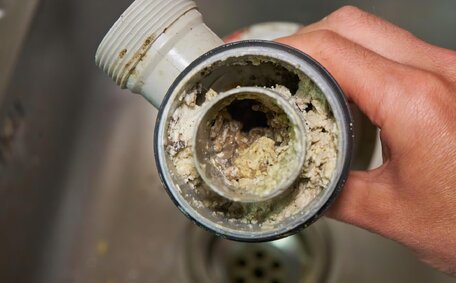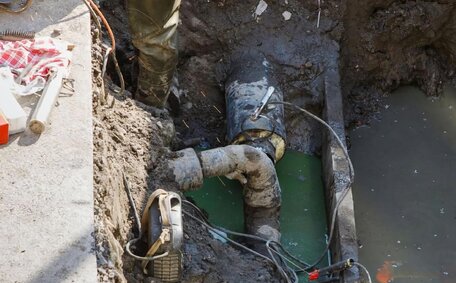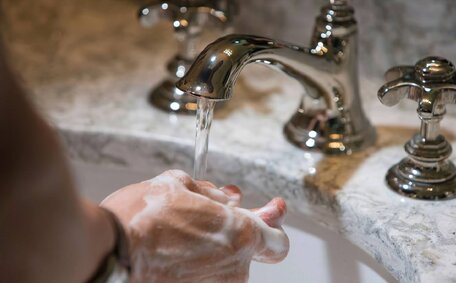The Importance of Preventative Plumbing Maintenance
Regular preventative maintenance is crucial for any household plumbing and heating system. Conducting inspections and minor repairs proactively avoids costly and inconvenient plumbing emergencies. Early identification and resolution of issues through preventative maintenance lead to significant financial savings by averting major repairs.
There are several key maintenance tasks that every homeowner should perform regularly. It’s equally important to routinely inspect the water heater, main water shutoff valve, and sewer line for any potential issues.
Key maintenance tasks include inspecting exposed pipes, monitoring water pressure, examining roof vents, cleaning gutters, and maintaining outdoor plumbing fixtures.
Consider scheduling an annual plumbing system tune-up with professional plumbers beyond typical DIY solutions. They have the expertise to thoroughly evaluate your pipes, fixtures, and appliances to spot issues you might miss.
If you notice any drips, clogs, drops in water pressure, or other problems, be sure to call an emergency plumber right away before the situation worsens.
Regular maintenance prepares your plumbing system for seasonal changes. In winter, you need to keep your pipes adequately insulated and protected against freezing. As summer approaches, sprinkler systems and outdoor faucets need to be checked so they don’t leak while in use.
Making plumbing maintenance a priority can save you from restless nights, knowing your system is safeguarded against a potential plumbing emergency. Take steps now to prevent an emergency plumbing disaster in your Gold Coast home.
Conducting Routine Plumbing Inspections
Routine plumbing inspections are a critical component of preventative maintenance, ensuring the integrity of your plumbing system.
Here are some recommendations: Annually inspect water supply lines, drains, fixtures, and appliances for leaks, clogs, and corrosion, adjusting frequency based on your system’s age and materials.
During an inspection, carefully examine exposed pipes, joints, valves, and fittings for any defects that can become significant issues if neglected. Use a flashlight to inspect hard-to-reach areas under sinks or behind appliances.
Look for drips, discoloration, mineral buildup, cracks, or dents that could indicate a current or impending problem. Check water pressure at all faucets and fixtures by turning them on and off.
Examine the water heater tank and connections vigilantly for any signs of corrosion or leaks.
Ensure that pressure relief valves and overflow pipes are unobstructed and functioning correctly.
Outdoors, inspect hose bibs, pool/spa equipment, and irrigation system components. Make sure outdoor faucets have anti-syphon valves. Look for wet spots or pooling water around the foundation which may indicate underground pipe leaks.
Catching even minor leaks early can take action to prevent water damage down the line. Small drips that go unresolved can progress into major leaks over time. If you spot any issues during inspection, contact our professional team right away for repairs before the problem worsens.
Checking for Leaks in Pipes and Connections
Inspecting pipes and pipe connections for leaks is a critical maintenance task that can help prevent catastrophic plumbing issues.
Start by visually examining all exposed pipes, joints, valves and fittings. Look for wet spots, discoloration, mineral deposits, corrosion or damage. Begin by carefully inspecting all exposed pipes, joints, valves, and fittings for any signs of wear or damage.
Activate your shower and faucets, checking diligently for any drips. Flush toilets and check around toilet base connections and supply lines for moisture.
Look for pooling water around your main pipes.
Check water pressure by turning on multiple faucets simultaneously. Keep things in check; Water pressure can drop and this could indicate leaks. Check water pressure by turning on multiple faucets simultaneously.
Inspect pipe connections in unheated areas like basements, attics and garages where freezing could cause breakage.
Listen for running water and know where to identify any leaks by checking your water metre when fixtures are off. If your metre is still running, a leak likely exists. Isolate the leak by learning how to turn off water to sections of your home.
Neglected leaks can cause water damage and quickly turn into major disasters. Have a professional plumber repair any leak immediately, no matter how small. Our North Mead team has the experience to diagnose and fix pipe leaks using advanced techniques.
Inspecting and Cleaning Drain Lines
Regular inspection and cleaning of drain lines is imperative to prevent clogs and keep drains free-flowing. Use a flashlight to examine all exposed pipes and connections for any buildup, corrosion, cracks or leaks. Pour water mixed with baking soda and vinegar down your drains monthly to break up grease and maintain clarity in pipes.
To tackle blocked drains, insert a drain snake or auger into your drain pipes to dislodge blockages. Alternatively, try a plunger to dislodge obstructions. Always start with the least-invasive options before resorting to harsh chemical drain cleaners which can damage pipes.
Listen for gurgling sounds when fixtures drain as this may indicate partial blockages. Address small clogs quickly to prevent costly plumbing issues before they escalate into complete obstructions. Prevent future problems by installing hair catchers and avoiding putting grease, coffee grounds, eggshells, and other clogging items down toilet and drain.
When it comes to regular inspections and cleaning, these steps help keep your plumbing in North Mead free of obstructions and working properly. Call your local plumber if you have a stubborn clog that requires immediate attention.
Examining Vents and Flashings
Carefully examine all vent stack openings for obstructions like leaves, nests or debris that could impede air flow. If the flashing is cracked or peeling away, it can allow rainwater to leak into the home and cause water damage.
Ensure vent cap security and monitor for any damage. Look for signs of deterioration of the flashing around the pipe.
Also check that vent extensions are adequately sized and sloped downward to prevent clogs. Use a flashlight to inspect the interior of vent stacks for buildup or rust. Proper venting is critical for allowing waste water and sewer gases to drain effectively.
By inspecting vents and flashings regularly, you ensure your plumbing maintenance keeps your system healthy and prevents blockages. Call professional North Mead plumbing technicians who have the expertise to diagnose and repair any venting issues keeping your drains free-flowing.
Use a flashlind sewer gases to drain effectively.
Maintaining Water Pressure
Keeping water pressure within a safe range is essure is consistently high, fitting a pressure reducing valve after the main shutoff can mitigate potential plumbing problems.
For low pressure, have a professional plumbing service inspect supply lines and valves for blockages. Partially closed fixtures valves can also restrict flow. Have a plumber inspect and adjust pressure if out of range.
Sudden spikes or drops in pressure can take a toll on your plumbing, potentially signalling serious issues like main line breaks or bursts. Take note if pressure changes when multiple fixtures are in use. Maintaining steady pressure prevents damage and ensures adequate water flow throughout the plumbing system.
Water Heater Maintenance
Safe and efficient water heater operation requires regular maintenance and prompt part replacement.
It’s recommended to inspect your hot water system at least annually and drain sediment that can build up in the tank bottom.
Also examine the anode rod, which protects the tank from corrosion. Replace it if worn out. Make sure electrical connections are tight and free of moisture.
For your plumbing and gas components, clean the burner assembly on a gas water heater and have a professional inspect for a gas leak in the line and flue vent annually.
Replacing heating elements and performing an occasional flush can also optimise performance. By staying on top of water heater maintenance, you can extend its lifespan and address minor concerns before they turn into further damage from untimely breakdowns or flooding disasters.
Caring for Faucets and Fixtures
Regular inspection and plumbing maintenance can help in resolving issues with faucets and fixtures before they escalate. Examine faucets and showerheads for drips or leaks with a simple on-and-off test.
Tighten any loose connections. Replace washers and o-rings at the first sign of dripping.
Examine toilets for leaks, flushing issues or cracks. Ensuring toilet supply valves operate smoothly can also save money on water consumption. Clean toilet tanks and bowls regularly. Immediately fix a running toilet to prevent wasted water.
For sluggish drains, use a plunger or auger before trying harsh chemical drain cleaners.
Repair dripping faucets right away to avoid continual water waste and potential damage. Catching small problems early prevents more extensive repairs down the line. Keeping fixtures in top shape improves plumbing performance and can help prevent costly emergencies.
Outdoor Faucet and Irrigation System Checks
Regular inspection and maintenance of outdoor faucets and irrigation systems are vital as seasonal changes can exacerbate unresolved issues, potentially leading to bursts and leaks. Before winter, shut off and drain any outside faucets and sprinkler systems to prevent freezing.
Disconnect and drain garden hoses. Insulate any exposed pipes or valves.
In spring, assess for any cracks or damage prior to reactivating the water supply. Examine faucets, valves and pipe connections for leaks and replace washers or o-rings as needed.
Test sprinkler systems and adjust sprayer heads. Replace any broken sprinkler heads or drip lines.
Year-round, check outdoor faucets regularly for drips or leaks to ensure your water isn’t wasted and water damage is prevented if left unresolved. Repair any leaky faucet immediately. Also clear any debris obstructing backyard drains to prevent clogging and flooding.
Properly maintaining outdoor plumbing prevents expensive repairs down the road. Contact our North Mead plumbing professionals for any issues keeping your outdoor faucets and irrigation system in top working order.
Professional Tune-Ups and Repairs
While DIY maintenance can resolve minor issues, certain situations necessitate the expertise of a professional plumber. Annual tune-ups allow experts to conduct thorough inspections and use specialised tools and diagnostics to evaluate your entire system. They can catch small problems before they become big headaches.
Professional expertise is crucial in safeguarding your business’s commercial plumbing settings, especially for complex repairs like pipe relining, sewer line replacement, slab leak detection, or water heater installation. Attempting extensive repairs without proper training can result in injuries, code violations, and compromised plumbing systems.
Contact us to schedule a top-tier plumbing services you can rely on.
Don’t wait until small issues escalate into catastrophic failures that can damage your home’s integrity and carry hefty repair costs. Whether it’s a routine maintenance or a sudden plumbing issue, trust that we’ll get your plumbing running safely and efficiently again. Your plumber, licensed and experienced, has the skills to skilfully handle any plumbing challenge in North Mead.
Seasonal Plumbing Preparation
Turn off water supply and drain irrigation systems. Clean gutters so melting snow can drain properly.
Prepare for spring by inspecting previously winterized areas for cracks or other damage before restoring water access.
Check pipes, joints, and seals to confirm their integrity against freezing temperatures. Clear any accumulated debris from backyard drains to prevent clogging issues.
In summer, irrigate plants and landscaping during the coolest parts of the day to reduce evaporation loss. Inspect sprinkler systems and repair broken heads or lines promptly to prevent wasted water flow. Inspect sprinkler systems and repair broken heads or lines promptly to prevent wasted water flow.
Watch for unusual spikes in your water bill that could indicate leaks and confirm the proper function of your main water valve.
Emergency Kit Essentials
Prepare for plumbing emergencies with a well-stocked emergency kit. This should contain basic tools like pliers, wrenches, a flashlight, gloves, and safety goggles. Keep spare parts like washers, o-rings, hose clamps, and pipe connectors. Absorbent towels, buckets, and mops can help contain water leaks.
Have copper crimp fittings, pipe patching tape, epoxy putty sticks and leak sealant to temporarily stop leaks.
Also include a manual drain auger, plunger, test gauges, sandbags, and heavy duty extension cords. Ensure you have batteries for smoke detectors, bottled water, protective gear, and important phone numbers to prevent further chaos during emergencies. When an emergency strikes, these supplies give you the resources to manage the situation until emergency plumbing services arrive. Being prepared can help minimise water damage and prevent a minor issue from becoming a costly disaster.
They buy crucial time until a professional can arrive.
Knowing When to Call a Professional
Although many maintenance and repair tasks are DIY-appropriate, sometimes you must call a professional plumber. If you encounter a major leak, complete drain clog, or your toilet or water heater stops working, immediate professional help is likely needed.
Also, plumbers can be called right away if you notice signs of major damage such as large cracks or shifts in pipes, widespread leaks, or water discoloration indicating rust in pipes. Professionals have specialised tools and expertise to inspect and resolve issues you may miss. They can ensure any repairs are properly executed according to codes.
Timely professional assistance for complex plumbing issues prevents further damage and avoids counterproductive repairs. Our licenced North Mead plumbers have the skills to quickly restore function, helping you avoid costly repairs.
Promptly addressing small issues can prevent them from escalating into costly disasters.
The Benefits of Preventative Plumbing Care
Regular and meticulous plumbing maintenance offers numerous benefits, from cost savings to improved safety. Preventative care is a cost-saving measure compared to the higher costs of emergency repairs.
Regular inspections and timely minor repairs enable early detection and resolution of plumbing issues, preventing costly breakdowns.
Preventative tasks such as leak checks, drain cleaning, and water pressure testing help avert escalating problems. This approach enhances safety by reducing the risk of flooding, mould growth or property damage from unchecked issues. It also ensures your plumbing remains compliant with local regulations.
Perhaps most importantly, staying on top of maintenance helps avoid the headache and disruption of unexpected plumbing failures. A proactive approach to maintenance ensures your plumbing system is in reliable condition, offering you peace of mind. Prioritise preventative plumbing care to safeguard your home and finances.






